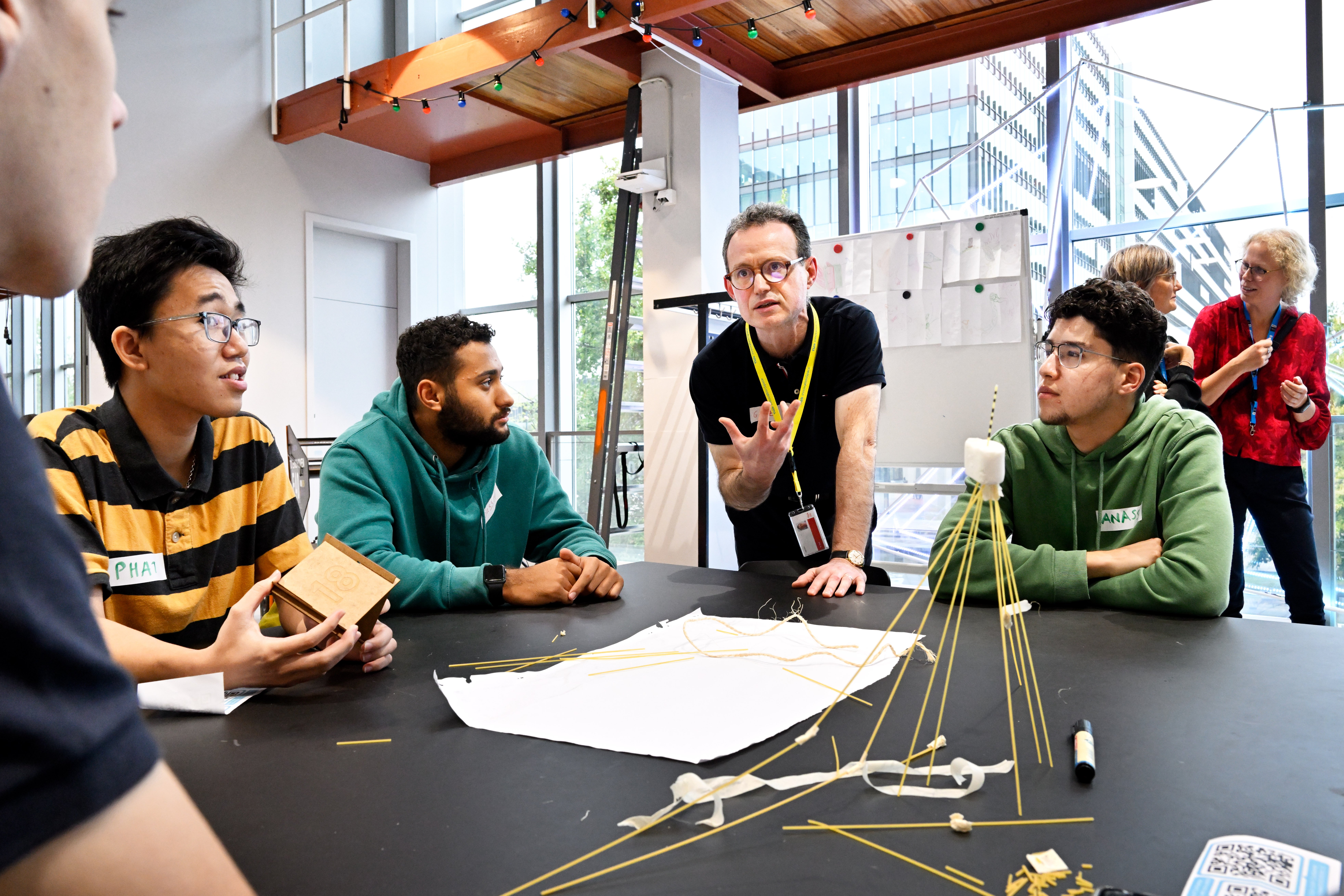
The bond between parent and child is crucial for the healthy development of children. However, if children are born too early, this adhesion comes under direct pressure. ‘Kangaroo Care’ – skin-to-skin contact between parent and child – preferably as much as possible, is what the situation demands. This is evident from research by PhD-researcher Deedee Kommers. Kommers’ research aimed to improve adhesion on the NICU (intensive care for premature babies). This was achieved with almost double the retention time during the PhD trajectory of Deedee Kommers. The research was carried out by Máxima Medical Centre in collaboration with the Technical University Eindhoven (TU/e). Kommers is defending her thesis on Wednesday 24 January.
Worldwide, just over one in ten children are born too early. Most of them suffer from some form of behavioural or health problems in later life. Many of the examples mentioned are poorer vision or hearing, impaired fine motor skills, attention problems, and general underperformance. “These problems can be addressed by improving the parent-child adhesion,” says Kommers. “But to be able to do that, you first need to know what adhesion actually is. If you know and can measure that, then you can possibly improve it afterward”. In the search for an answer to the question of what adhesion is, Kommers found out that kangaroo care not only is good for adhesion, it is also the best time to measure the adhesion between parents and children born too early.
The idea behind kangaroo care is that parents replace the incubator’s function during that period. It does indeed appear that babies develop better if they have regular skin-to-skin contact with their parents. The question was: what exactly is happening during these periods of kangaroo care, can we measure that? If so, could we possibly imitate the effect of it? To answer these questions, Kommers investigated the influence of kangaroo care on the hormone system, the nervous system and the behaviour of prematurely born children.
Kommers: “Our hypothesis was that oxytocin would change during kangaroo care, but oxytocin is very difficult to measure. We looked in a pilot study to see if you can get enough oxytocin out of baby’s saliva and that was successful. After that, we did a larger study with more babies.”
There is also a handy signal that allows you to measure the activity of the autonomic nervous system: the heart rate. This can be used to show rest or stress. Kommers examined differences in the heart rhythm of premature babies from stroke to stroke before, during and after kangaroo care. “We immediately saw differences between the moments in the incubator and during the care by the parents. It is very nice if you can show with a signal at a glance what the positive effect of cuddling is. With such a parameter you can convince people even more that more kangaroo care is needed”, says Kommers.
“Extending the period of kangaroo care is the most effective way to improve parent-child adhesion”.Deedee Kommers,
In addition, such a parameter allows you to evaluate the effect of new products, which are intended to help improve the parent-child adhesion by simulating aspects of kangaroo care. Kommers: “At night, the children on the NICU are alone. We, therefore, encourage students of the TU/e to develop smart innovations for an extra boost for premature babies during the night.”
Hugsy
Kommers has tested two innovations during her research: the Babybe, an incubator mattress that can mimic the breathing and heart rhythm of parents, and Hugsy, a blanket that can also be used during kangaroo care and absorbs the smell of the mother or father. By measuring differences in baby’s heartbeats, it was examined whether the BabyBe and Hugsy could soften the annoying moment of returning to the incubator after the parents’ personal care. Kommers: “We want to lower the heart rate peak that a baby has when moving from the chest to the incubator. This is normally a stressful moment. The results of these two innovations are positive.”
Smart technologies may, therefore, be able to contribute to improving the parent-child adhesion in the future, says Kommers. “However, much more important is that, by doing research into this and thus emphasizing the importance of kangaroo care, the kangarooing time at MMC’s NICU almost doubled during the years of my PhD research. It is clear that extending the actual length of it is the most effective way to improve parent-child adhesion.”
(Source: MMC press release)







